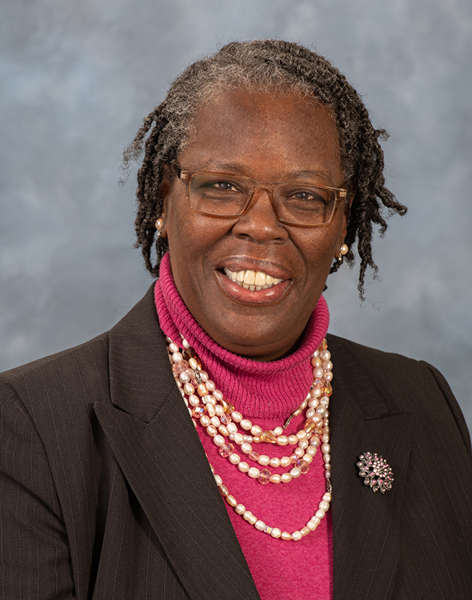
Representative Gilda Cobb-Hunter —Democrat – District 95 (Orangeburg)
- First elected to the S.C. House in 1992
- Longest serving Representative in the S.C. House
- First person of color to serve as House Minority Leader (1997-2000)
- 1st Vice Chair – House Ways and Means Committee
- Member – House Higher Education Budget Subcommittee
Former president – National Black Caucus of State Legislators
Member – National Conference of State Legislatures
B.S., African American History – Florida A&M University, 1973
M. A., American History – Florida State University, 1978
CEO – CASA Family Systems
Licensed Social Worker for more than 44 years
1. How did attending college prepare you for your successful career?
It gave me the academic and social skills to deal with a diverse group of people in a variety of settings.
2. Do you have a particular professor or class that made an impression on you? If so, how?
My history professor made a lasting impression on me because of his passion for the subject matter and his ability to make it interesting and relatable. I have always been interested in history and current affairs and Professor James Eaton increased that interest.
3. Why did you decide to become a state legislator?
I had been actively involved in Democratic Party politics and organizing women of color for political involvement. When the seat became open I was encouraged to run and threw my hat in the ring. I saw it as an opportunity as a social worker to have an impact on public policy.
4. Having served since 1992 you are the longest-serving member of the S.C. House. You’re also longest-serving African American ever in the history of the House, and the longest-serving female. Those are all achievements in themselves! What aspects of your work in the House are you especially proud?
I’m most proud of the work I have done to make a difference in the quality of life for people in this state. That work includes changes in domestic violence and sexual assault laws, better pay for state employees, rural economic development, and expanding broadband access in rural communities.
5. You’re also the senior member of the Higher Education Subcommittee of the House Ways and Means Committee. From your perspective what’s important about higher education, and, in particular, independent colleges and universities in South Carolina? How are they important to the future of the state?
I was taught the value of an education by my parents who were both high school dropouts, although my Mom later got her GED. It is critical that our independent colleges and universities are available as an option to those South Carolinians who want or need the smaller setting and environment that they offer. The graduates from our state’s independent colleges and universities are sources of unquestionable talent and are making a difference at all levels across South Carolina.
6. If you hadn’t dedicated so much of your time to serving in the General Assembly, what do you think you would have done?
I’m a licensed master social worker and have spent the last 44 years working with victims of family violence and community organizing. That work has continued while I have been in the House and most likely is what I would have done.
7. What advice do you have for students attending SCICU member institutions?
Take advantage of the opportunity the smaller environment affords you to get a great education and make lasting friendships. Once you’ve graduated support your alma mater in any way you can, especially financially, and encourage others to attend. Above all know that you will get out of the college experience what you put into it.
